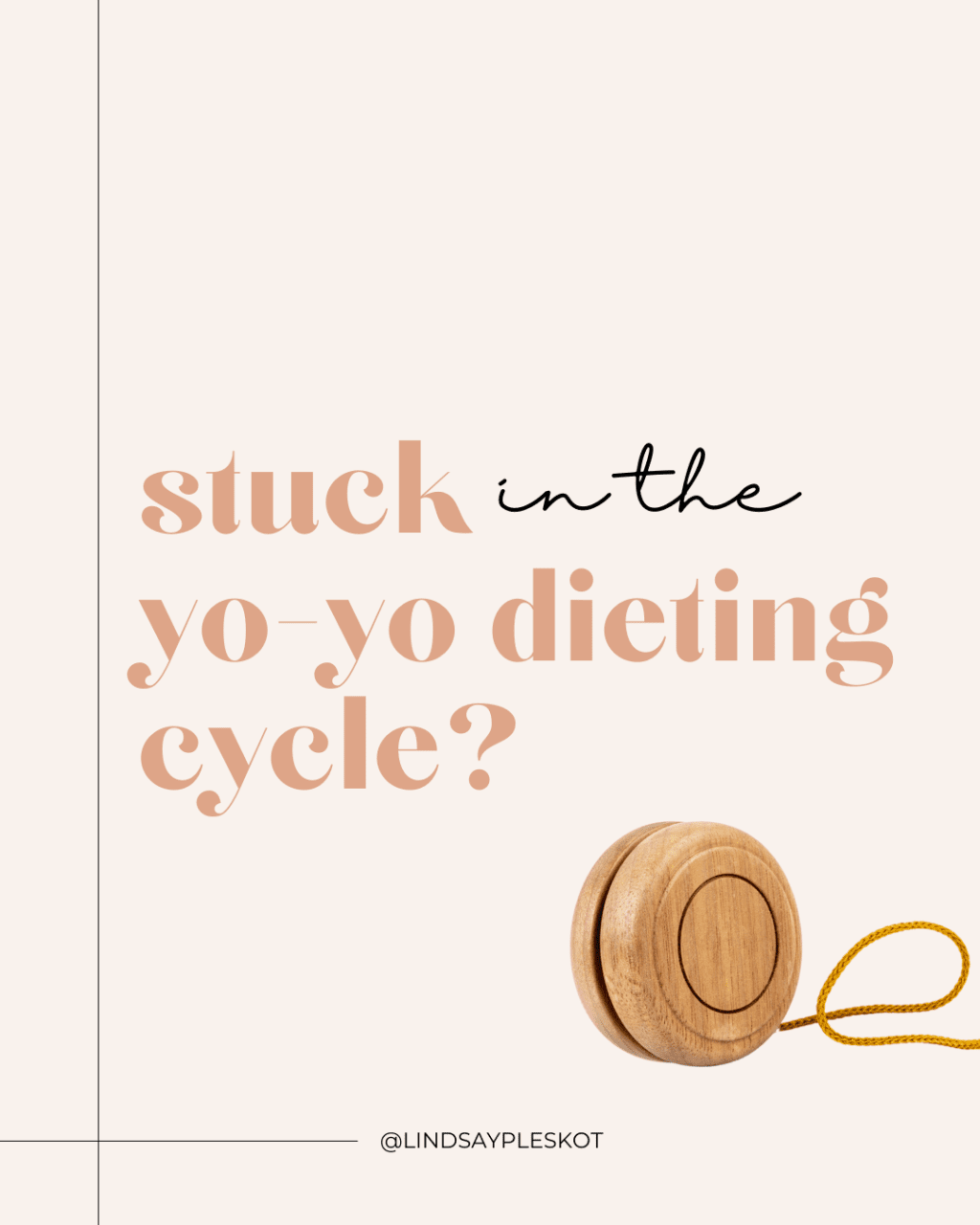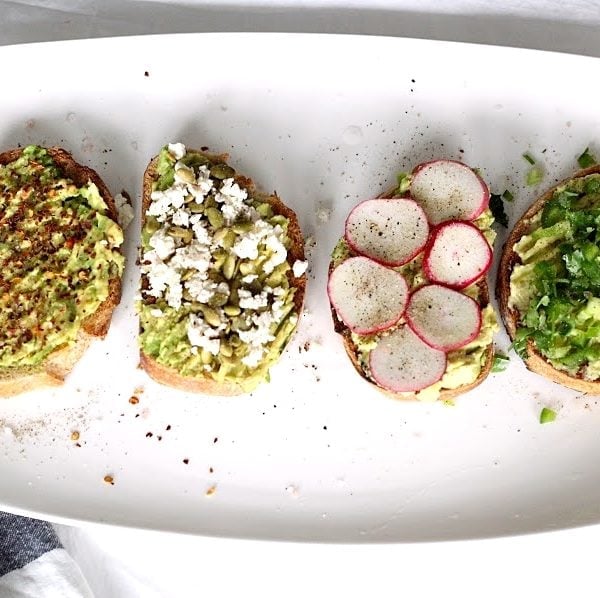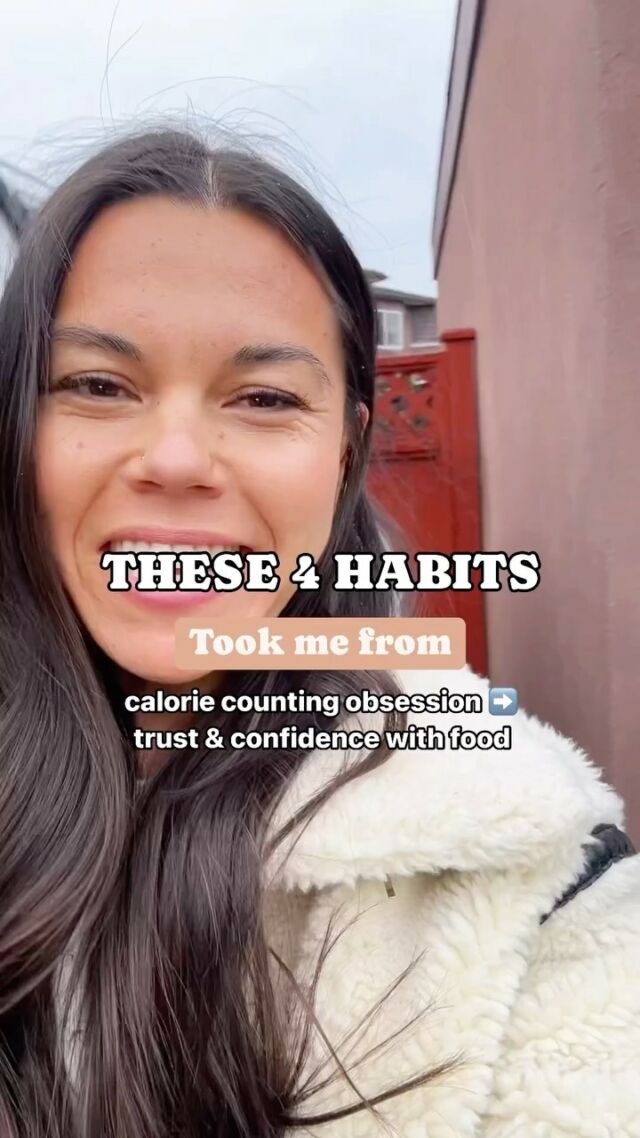Yo-yo dieting, also known as weight cycling, is the repeated pattern of dieting to lose weight, regaining the lost weight, and then dieting again. The pressure to be thin in a diet culture society triggers this endless dieting cycle. Despite regaining the lost weight, many of us fall into the fantasy that the next diet will be different or this time around we’ll have more willpower to keep the weight off for good. But is it truly a case of needing a new plan or being more disciplined? As an intuitive eating dietitian, my mission is to arm you with the facts so that you can make empowered decisions about what’s right for you. Here we dive into what yo-yo dieting is, what causes yo-yo dieting, what the yo-yo effect is and how it impacts our health – plus 3 ways to stop yo-yo dieting immediately.

Whether we’re aware of it or not, yo-yo dieting is everywhere we look. Whether it’s a friend talking about how he’s trying to get shredded during a 90 day fitness challenge, an overwhelmed bride-to-be trying to ‘slim down’ for the big day, or a new mom facing intense societal scrutiny and pressure to ‘bounce back’ after baby, it can seem like we’re all riding this never ending merry-go-round that never even wanted to be apart of.
If this resonates with you, you’re not alone. According to a report published by the Centers for Disease Control and Prevention’s National Center for Health Statistics, almost half of American adults surveyed between 2013 and 2016 reported that they had tried to lose weight within the last 12 months. Considering it’s now 2022, it’s safe to say that this statistic is likely even higher now, with the American weight loss industry reported around 250 billion dollars.
If you’re feeling a sense of existential dread from these statistics, don’t worry – we got you! As an intuitive eating dietitian, we are here to arm you with the facts so that you can make empowered decisions that feel good to you. Today on the blog, we unpack what yo-yo dieting is, what the potential causes of yo-yo dieting are, the effects of yo-yo dieting and it’s negative impacts on our health, and 3 ways to ditch yo-yo dieting for good.
So let’s begin.
Off the top, we often hear these two questions come up time and time again:
Ironically, our endless pursuit of weight loss for health may actually be making us unhealthy. Read more about this here
Yo-yo dieting can be triggered by the pressure and desire to be smaller leading to a constant battle to fight our own biology. This almost inevitable results in constant fluctuations in our weight. Find out more about this here
You can also skip to any of the following parts of the article at the links below!
- What is Yo-Yo Dieting?
- What Causes Yo-Yo Dieting?
- What is the Yo-Yo Effect?
- Effect of Yo-Yo Dieting
- Is Yo-Yo Dieting Unhealthy?
- 3 Ways to Stop Yo-Yo Dieting Immediately
Ready to Transform Your Relationship with Food?
Explore not just what you eat but why you eat, how you feel when you eat and any patterns that affect how you feel or impact any choices you make and start your journey to food freedom today!
What is Yo-Yo Dieting?
Yo-yo dieting, also known as weight cycling, is the cyclical pattern of losing weight, regaining it, and then dieting again.
It can be shown through a model created by two psychologists, John P. Foreyt and G. Ken Goodrick, where it shows the cyclical nature of the Dieter’s Dilemma. First it starts with dieting, leading to intense cravings, loss of control eating, and regain of the lost weight (see image below). With every turn of the cycle, we lose weight, regain it back (and often more), and land right back where we started.

What Causes Yo-Yo Dieting?
Yo-yo dieting is often triggered by the desire to be smaller or thinner. And this makes sense, given we live in a culture that values thinness above all else. According to Christy Harrison, RD, diet culture can be defined as a system of beliefs that:
- Worships thinness and equates thin with being healthy
- Promotes weight loss as a means of attaining a higher status
- Demonizes certain ways of eating while elevating others
- Oppresses people who do not match up with the thin ideal or the gold standard of health
Given that we’ve all experienced diet culture to some degree, no wonder so many of us are actively trying to lose weight to fit into the safety of what our society values. However, as covered more in depth in Why diets don’t work and 6 steps to take instead, diets have a 95% failure rate, meaning most people who diet regain the weight back within 2-5 years, with up to ⅔ of these dieters regaining even more weight than when they started. In fact, a review of 29 long term studies showed that going on a diet was a consistent predictor for long term weight gain. This phenomenon may account for the large effects of yo-yo dieting we see today.
What is the Yo-Yo Effect?
So what is the ‘yo-yo effect’? It begins like this. You’re on a diet and you start following a set of rigid rules that tell you what and how much to eat, typically allowing a caloric intake that is much lower than what your body needs. You follow this for a period of time until you reach your goal weight, all the while receiving praise and admiration from your peers and community, which makes sticking to your diet that much more enticing.
However, once you reach your goal, you start to notice that following this rigid diet is getting harder and harder to maintain. You start to notice insatiable hunger, intense cravings, and fatigue. You may even notice a deep sense of deprivation, not only with food but also with social connection, given how strict your routine has been. In the end, you start to notice the number on the scale start to increase, and over time you realize you have regained the weight you lost, and then some.
So what causes this up and down effect?
Effect of Yo-Yo Dieting
Decreased metabolism
This may surprise you, but your body actually registers your diet as a ‘famine’. Evolutionary forces have allowed the body to learn how to handle ‘famine’ states readily, and it cannot distinguish between real or self-imposed starvation.
Within a week, the body may lower its metabolism by up to 40%…
And down regulate non-essential functions such as bone metabolism, reproductive function, and maintenance of hair, skin, or nails. Once the ‘famine’ is over, the body will try to increase its metabolism back to baseline, however this will be lower due to the loss of lean muscle tissue during the weight loss phase (more on that in a minute). During the weight regain phase, we see that fat is much more readily gained than muscle mass, with an increased amount of fat distributed as visceral fat, that is, fat that surrounds vital organs, within the abdomen. This preferential storage of fat can be seen as a survival mechanism to store more energy away to prepare for the next ‘famine’.
Loss of lean muscle tissue
Along with burning fat for fuel during a diet, your body will also burn its lean muscle tissue when it is not getting enough energy. This is because your brain, central nervous system, and red blood cells rely exclusively on glucose for fuel. They also can’t store glucose like our muscles or other organs can, so they need a constant supply from our diet. If there is a glucose deficit, the body will adapt by converting amino acids from your body’s muscle into glucose, through a process known as gluconeogenesis. The loss of lean muscle tissue further decreases your metabolic rate.
Increased level of our stress hormone, cortisol
Dieting, aka semi-starvation, can act as a stressor on our bodies. Increased levels of cortisol can increase fat storage and increase our appetite. From an evolutionary perspective this makes sense. When we’re stressed, our body thinks we might be in danger and so it stores away extra fat so that we have access to more energy in case we need to fight off a threat. In the past, this threat might have been a tiger or hostile tribe, however, in today’s modern environment, our threats are now very different, and often faced chronically in the form of work, school, family, and other responsibilities.

Is Yo-Yo Dieting Unhealthy?
Ironically, our endless pursuit of weight loss for health may actually be making us unhealthy.
Studies have shown that while metabolic parameters (ex. blood pressure, blood sugar, lipid profile levels, and signs of inflammation) seem to improve short term with initial weight loss, these parameters seem to worsen each time you regain the weight. Studies have linked weight cycling with an increased risk for diabetes, heart disease, hypertension, fatty liver, and certain cancers.
One such study, the Framingham Heart Study, followed more than 3000 men and women for 32 years and found that regardless of initial weight, participants who weight cycled/yo-yo dieted had a higher overall death rate and twice the risk of dying of heart disease.
Studies have also linked yo-yo dieting to an increased risk for eating disorders, social anxiety, lowered self esteem, and feelings of failure.
Ready to Transform Your Relationship with Food?
Explore not just what you eat but why you eat, how you feel when you eat and any patterns that affect how you feel or impact any choices you make and start your journey to food freedom today!
3 Ways to stop Yo-Yo Dieting Immediately
If you’re ready to stop the yo-yo dieting merry-go-round and learn How to stop feeling guilty after eating, we’re here to support you 100% of the way. Here are 3 steps to help you get started:
- Arm yourself with the facts
- If you’re feeling a sense of cognitive dissonance regarding what you just read, that’s okay! You are not alone and this is all part of the unlearning process. Going against diet culture’s mainstream messages takes a lot of courage and a lot of practice. Here are some places you can start:
- Explore the principles of Intuitive Eating
- Ditching the dieting mentality is one thing, but where do we go from here? Try exploring the 10 Principles of Intuitive Eating – What is it and is it right for you and working with a trusted intuitive eating professional. These principles help you to let go of your mental food rules and restrictions and help to reconnect you with your own body’s wisdom, such as what hunger and fullness feels like? What tastes good, feels good, and satisfies? And what might you really need right now in this moment?
- Learn about the Health At Every Size Movement
- If you’re feeling lost with what to do instead of dieting to help support your health, try learning about the Health At Every Size movement. This movement prides itself on being weight-neutral, meaning instead of the emphasis being on the outcome of the number on the scale, it instead focuses on the behaviours that one can do to improve their health. This includes finding a way to incorporate joyful movement into your everyday routine, getting adequate sleep, finding supportive stress management practices, and providing your body with consistent and balanced nutrition.
- Here are some resources to help you get started:
- Check out Association for Size Diversity and Health for more information
- Read Body Respect by Dr. Lindo Bacon and Lucy Aphramor, RD
- Eat regularly throughout the day and include well-balanced meals and snacks.
- Eating regularly prevents those spikes and drops in blood sugars that can lead to feeling out of control around food, leading back to that desire to restrict. Here are a few of our favorite recipes for that!
And we’ve also put together this roundup of meal prep snack ideas for you to make it super easy!
Now Over to You
- Does this yo-yo diet cycle sound familiar?
- Did anything about the research surprise you?
- Was there anything we missed that you’d add in?
Share with us in the comments below or take a screenshot and share it with us over on Instagram! And if you found this post helpful, pass it along to a friend or family member who could benefit from it too!
Looking for More Support?
Looking for support to end the diet cycle, trust your body and learn the nutrition that feels amazing for YOU? Learn more about my Make Food Feel Good Program here where hundreds of women have found lasting success through my proven framework and step-by-step guided support. Let’s Chat!









Leave a Comment & Rate this Recipe